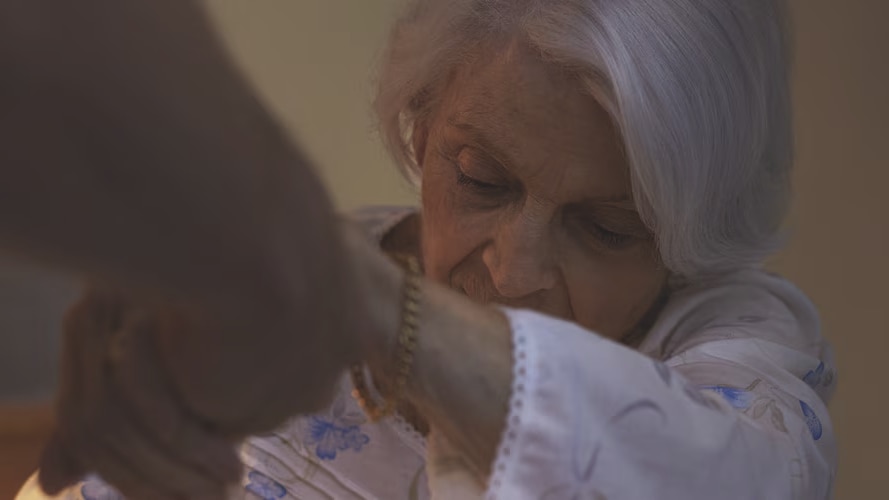As we get older, our skin naturally becomes more fragile. As a result, it becomes more prone to infection and irritation and is sensitive to excessive moisture and prolonged contact with urine or faeces. To help protect fragile skin against injury and prevent infection, skin health should always be an essential part of an effective continence care routine.
Skin health – an essential part of continence care
How incontinence affects skin health
Poor continence care such as the wrong absorbent or skin care products and the wrong hygiene routines, can cause skin health issues. This is because the sensitive perineal area is more exposed to urine, faeces, harsh soaps and skin friction.
When the outer layers of the skin come into prolonged contact with urine or faeces, it damages the skin’s protective barrier and can cause an inflammation of the skin called incontinence-associated dermatitis (IAD). IAD affects the outer layers of the skin whilst pressure injuries (PI) begin deeper in the skin layers and appear from the inside out. Pressure injuries often develop over bony prominences or under medical devices. IAD is a risk of skin infections and PI.
When skin is wet, there is also a greater risk of shear wounds as wet skin experiences greater friction against material than dry skin. For example: if skin comes into contact with clothing, incontinence products, or the resistant surface of a bed or chair.
Finding the right balance
Too much or too little moisture can quickly disturb the skin’s natural balance and lead to skin health issues. Overly dry skin is more fragile and can cause cracking, scaling and itching, which can lead to irritation and infection. Dry skin can also be caused by using harsh soaps. Frequent cleansing with soap and water disrupts the skin’s integrity, reducing its ability to prevent infection. Soaps contain cleansing ingredients called surfactants that can cause irritation if left on the skin, even after rinsing. No-rinse products, however, leave a thin layer of emulsion behind, which comforts and soothes the skin.
Lower levels of moisture in the superficial layer can result in dry, scaly skin, while over-hydrated skin makes it more permeable and susceptible to viruses and bacteria. The only way to maintain skin health is to find the right balance and ensure that those in care always have the right products and skin care routines to suit their individual needs.
Three steps to better skin health
At TENA, our extensive experience within continence care has taught us that the three most important principles for maintaining skin health are: Keep skin dry. Keep it clean. Keep it protected
*Required fields

Keep skin dry
Choose products with a fast absorption that are gentle on the skin. This will keep skin dry and let it breathe. Always ensure that the product type, size and absorption level suit the residents’ needs. Make sure it is properly fitted for more comfort, dignity and leakage security and changed according to the individual care plan or whenever needed. Toilet as often as needed to prevent leakages. Any soiled products must be removed quickly and the skin thoroughly and gently cleansed.
*Required fields

Keep skin clean
Skin should be carefully inspected and cleaned after every product change, especially the folds. Ensure skin is dry after cleaning and use skin care products that suit individual needs. The surface-active agents in a wash cream are kinder to sensitive skin in the perineal area than those found in soap. TENA no-rinse products effectively clean, moisturise and protect even the most fragile skin, helping the skin’s natural barrier stay intact.
*Required fields

Keep skin protected
As part of a daily care routine, the whole body should be moisturised with a lotion to keep skin soft and prevent itching. When skin needs extra protection, use a barrier cream. This provides an extra layer that protects the skin from excess moisture and irritants like urine and faeces. A transparent barrier cream allows you to assess the skin’s condition after application. If there is no improvement after five days, adapt your care plan as necessary.









